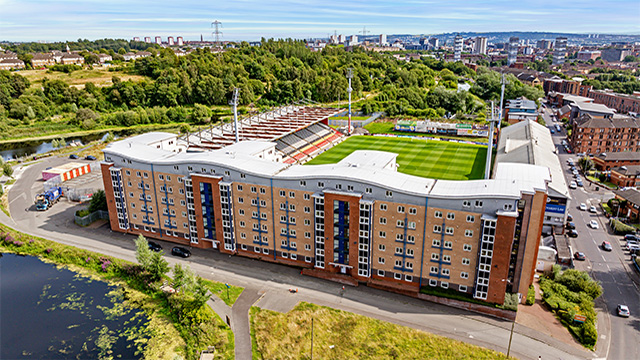The UK’s AI Action Plan will require efficient infrastructure investment
The government’s AI Action Plan has been hailed as a critical moment in the UK’s bid to establish itself as a global leader in artificial intelligence.
It comes at a time when the technology is spreading its roots across key British industries. The prime minister’s vision is threefold – to enhance computing power, streamline data centre development and allow access to the best talent possible.
For the property sector, this action plan can be of significant long-term benefit. In our industry’s case, AI’s potential goes beyond tech start-ups and in-office chatbots. It can completely recalibrate how the industry operates, increasing short-term growth and long-term productivity.
The government’s AI Action Plan has been hailed as a critical moment in the UK’s bid to establish itself as a global leader in artificial intelligence.
It comes at a time when the technology is spreading its roots across key British industries. The prime minister’s vision is threefold – to enhance computing power, streamline data centre development and allow access to the best talent possible.
For the property sector, this action plan can be of significant long-term benefit. In our industry’s case, AI’s potential goes beyond tech start-ups and in-office chatbots. It can completely recalibrate how the industry operates, increasing short-term growth and long-term productivity.
With more than £14bn committed, part of the plan will live or die on its ability to enhance existing infrastructure and provide longevity. If we are to instil the foundations that can make us an AI superpower, the government must work in lockstep with the property sector.
Building the backbone
Many in property have already seen the initial benefits that AI can bring, from generative design tools that explore tens of thousands of design possibilities to project management systems that optimise scheduling and predict delays. The technology is rapidly helping cut costs and improve decision-making. However, that is only the start.
As it evolves, its role in reshaping our industry will become even more pronounced, from improving the speed of urban planning to real-time analytics that will improve energy efficiency. However, this will only be the case if critical infrastructure needs are addressed and invested in by both the government and the private sector.
Simply put, for more AI to be available, more efficient data centres will be required. The government’s commitment to increasing supercomputing capacity and establishing AI Growth Zones is a step in the right direction. It is no surprise that the key investments, from the likes of AI-focused technology companies such as Vantage, Nscale and Kyndryl, are going directly into AI infrastructure. With streamlined planning for data centre development, these zones could provide the backbone needed to support advanced AI applications.
This presents a dual opportunity. First, it enables the industry to take the lead in delivering the physical infrastructure, whether it be data centres or innovation hubs. It will also help deliver the prime minister’s ambitious target of building 1.5m homes by 2030. By working in lockstep with local councils, AI-powered tools such as prediction modelling would better streamline processes that have always been slow and fragmented.
Second, from Silicon Valley to South Korea, epicentres of innovation have long demonstrated the power of clusters to fuel progress. If we are to cement the UK’s role as a global leader in AI, it is vital to prioritise the creation of localised innovation hubs and clusters in our capital and across the country.
East London, home to innovation clusters like Here East, with its own innovation centre, Plexal, offers a blueprint for how these zones can function. By combining educational institutions, start-ups and established businesses in a collaborative ecosystem, the area has fostered growth in cutting-edge fields such as AI-powered robotics.
These districts play a crucial role in attracting global investment, transforming the UK into one of the most fertile business environments in the world for innovation – and we need to support them to continue to grow the UK economy.
Call to action
AI is not just reshaping technology, it’s reshaping the spaces we live and work in. The government (including local authorities) must recognise the property sector’s pivotal role in this transformation and help enhance the speed and removal of red tape in the construction of this key infrastructure. These are tools for driving progress – whether it is constructing the data centres that power AI or designing the workplaces of the future, the sector has a unique opportunity to lead.
The AI Action Plan is a starting gun, but the race is far from over. Prioritising investment in infrastructure is a critical priority, and the sector is at hand to help and ensure the UK can cement its position as a global AI leader.
The path forward now is clear: to lead in AI, we must continue to build the foundations today. The property sector is uniquely positioned to lay the groundwork for this exciting new chapter in the UK’s economic story.
Gavin Poole is chief executive of Here East











